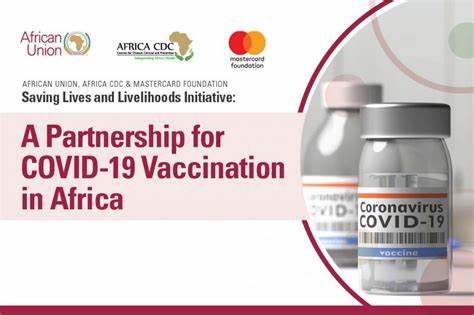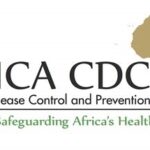Africa CDC, UNICEF, and Mastercard Foundation Strengthen Nigeria’s Vaccine Cold Chain to Safeguard 8 Million Children.
By Uwais Abubakar Idris
In an ambitious drive to fortify Nigeria’s immunization system, the Africa Centre for Disease Control and Prevention (Africa CDC), in partnership with the Mastercard Foundation and UNICEF, has intensified the implementation of the landmark Saving Lives and Livelihood (SLL) initiative — a transformative effort that continues to reinforce the nation’s cold chain and vaccine delivery capacity after the COVID-19 pandemic.

Launched in June 2021 at the height of the global health crisis, the SLL initiative has grown into a continental model of collaboration, ensuring that the health infrastructure built during the pandemic continues to protect millions of lives across Nigeria. Through UNICEF’s technical leadership, obsolete and inefficient vaccine refrigerators are being replaced with energy-efficient solar-powered equipment, ensuring potency of vaccines even in remote facilities without electricity.
Under the first phase of implementation, the initiative successfully rehabilitated and expanded cold chain equipment nationwide — including the installation of 115 solar direct-drive (SDD) refrigerators, 234 SDD freezers, 778 vaccine carriers, and 1,000 temperature monitoring devices, alongside improved vaccine waste management systems in two states.
The second phase, set for completion by December 2025, will see the decommissioning of obsolete cold chain equipment across 10 priority states—Taraba, Enugu, Lagos, Kano, Ogun, Osun, Zamfara, Benue, Rivers, Gombe, and Niger—and nationwide logistics support for vaccine distribution across all 37 states. Additionally, over 300 technical personnel are being trained in vaccine storage, logistics, and cold chain management to sustain efficiency and accountability.
Officials say the initiative’s impact extends beyond infrastructure. It has enabled vaccine access to 234 health facilities previously without power and is expected to benefit more than 8 million Nigerian children, ensuring reliable immunization at the last mile.
Despite early challenges such as alignment with national supply chain priorities and delayed deployment of solar fridges, coordination between Africa CDC, NPHCDA, and UNICEF has restored momentum. Partners continue to emphasize integration with the Basic Health Care Provision Fund (BHCPF) to anchor sustainability within primary healthcare systems.
Looking ahead, Africa CDC and UNICEF have pledged continuous optimization of Nigeria’s vaccine supply chain and increased support for last-mile delivery and community demand generation. The SLL initiative stands as a testament to what strategic collaboration and innovation can achieve in transforming Africa’s health resilience.










